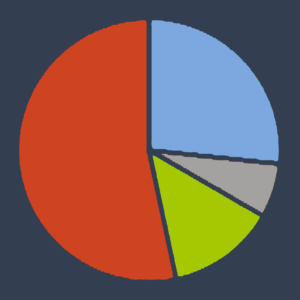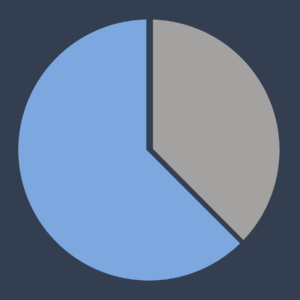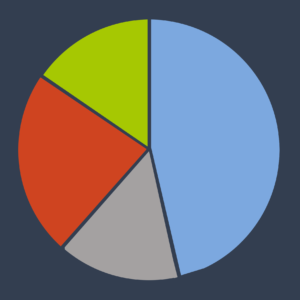
Alvaro Valera Sosa
Charlotte Marchandise
Sujata Karve
Sarah Morris Jones
Ben Cave
Alessandra Bianchi
Arturo Gleason
Flavia Goldsworthy
Andrea Haase
Göran Lindahl
Ilaria Geddes
Eliza Patouris
Nicoletta Setola
Marcus Grant
Anne Roue-Le Gall
Celebrated Wednesday, May 25, 2022, at 14:00 CET
Proposal presentation content
In January 2022, BHL Building Health Lab, Reset Research & Education, Chalmers University of Technology, University of Florence, and the University of Cyprus submitted a proposal before the EU’s program Erasmus + to support capacity building in the fields of Urban Health.
In the face of a global climate and health crisis, the proposal to develop projects for urban health must start now.
The creation of the UrbanCare Capacity Building Hub is for academics and practitioners to team around the urgent need of project developers and city makers in building spaces for climate and health.
This proposal presentation summarizes the steps, investments, and results attained by the Building health Lab in testing the UrbanCare proposal and its methodology in Berlin and Gothenburg. It shows a transdisciplinary approach to developing sustainable spatial solutions for urban health.
Hub Participant Surveys
The first Hub meeting discussed the proposal and possibilities for participating in its development as institutions or individuals. The discussions developed along with two surveys.
The First Meeting Results
The first Hub meeting discussed the proposal and possibilities for participating in its development as institutions or individuals. The discussions developed along with two surveys.
The first two questions asked about motivations and expectations of joining the hub.
Results Q1
1 | Health has become an important aspect in today’s context. The built environment contributes to the feeling of well-being and health is also an established fact. The concept of Care through Urban interventions is an interesting concept and understanding more about it as well as figuring out how I could contribute to this motivated me to join the meeting. Also look forward be a part of this hub and playing a small role in making a difference in the health of people. |
2 | I dreamt of it for years 😉 I especially focus on training policymakers, as Health is a political choice, and we need to influence political choices for health |
3 | I would like to see UrbanCare interventions implemented in my country. |
4 | Be part of something which is a passion and keen interest Learn and listen Widen knowledge and understanding |
5 | Meet new people and old friends – learn what is happening and find out what the hub is all about |
6 | I am wanting to see how connections with the Cities & Health journal might add mutual value. Also to offer my experience, as relevant, as the Hub develops. Papers, networks, contacts, and potential income are always useful. |
7 | The vision of this project is multidisciplinary and multicultural. My main interest is to contribute with my knowledge of rainwater and stormwater knowledge and experiences to this important project. |
8 | Exchange knowledge about sustentability, in order to participate in investigation in this proyect. My main interest is to contribute with my knowledge of rainwater and stormwater knowledge and experiences to this project. |
Results Q2
1 | Expecting to understand the concept more in detail, how it is being implemented and how can it be applied to my context. |
2 | Change the world, nothing less |
3 | An action plan to engage decision-makers in taking action about urban health. |
4 | Learn more about the project, meet members |
5 | As above really … I want to learn about this exciting initiative |
6 | Similar in a way to my answers to q2. Assessing how a partnership with Cities & Health journal might add shared and mutual value. Also to offer my experience, as relevant, as the Hub develops. I am here to listen and learn about the proposal. |
7 | To know more about the project and my role and contribution. |
8 | To know more about the proyect and eventually, contribute to the investigation |
The second survey helped ponder on possibilities and spaces for participation.
Results
Module 1 | Module 2 | Module 3 | Module 4

Competence development | Practical training

Academia | Industry | Government | Non-profit, NGOs

First Meeting Conclusions
The meeting was held in three parts: Background, Surveys, and Discussion.
Background
The UrbanCare Capacity Building proposal submitted to Erasmus+ is only one possibility to finance the Hub’s development. Other financial mechanisms will continue to be considered and discussed.
The UrbanCare methodology tested in Berlin and Gothenburg by Building Health Lab (BHL) proved effective in applying the five modules to problem-solve climate and health issues at the sites studied. During the testing period, the UrbanCare Capacity Building Modules were presented as competence development modules and practical training modules.
The groups involved were diverse in technical and academic backgrounds and were able to work in a transdisciplinary way on the challenges found. However, the implementation of the methodology had two major limitations. Participants faced a steep learning curve to get on board the project which required increasing contact hours and hundreds of hours in developing multimedia teaching material.
Surveys
The highest preference to help develop the deepening modules was for Module 4 (health-centered design), and the lowest preferred for Module 2 (data management). The group divided opinions on whether to participate or not in the development of module 5 (transdisciplinary development). The modular structure proposed will not change however, more participants will be needed to lead the practical training modules. The target audience of preference is academia summing up nearly half of the votes. The remaining options (Industry, Non-profit organizations and NGOs, and Government) had a similar preference.
Discussion
The group agreed to have individual conversations with BHL to elaborate on possible contributions and synergies to:
○ Climate friendly & biodiverse landscapes help cure chronic diseases
○ Healthcare closer to people improve patient outcomes
We battle climate change impacts on urban ecosystems and health across different European climate zones.
Co-funded by the European Union.
We support city makers in implementing sustainable development goals with evidence.